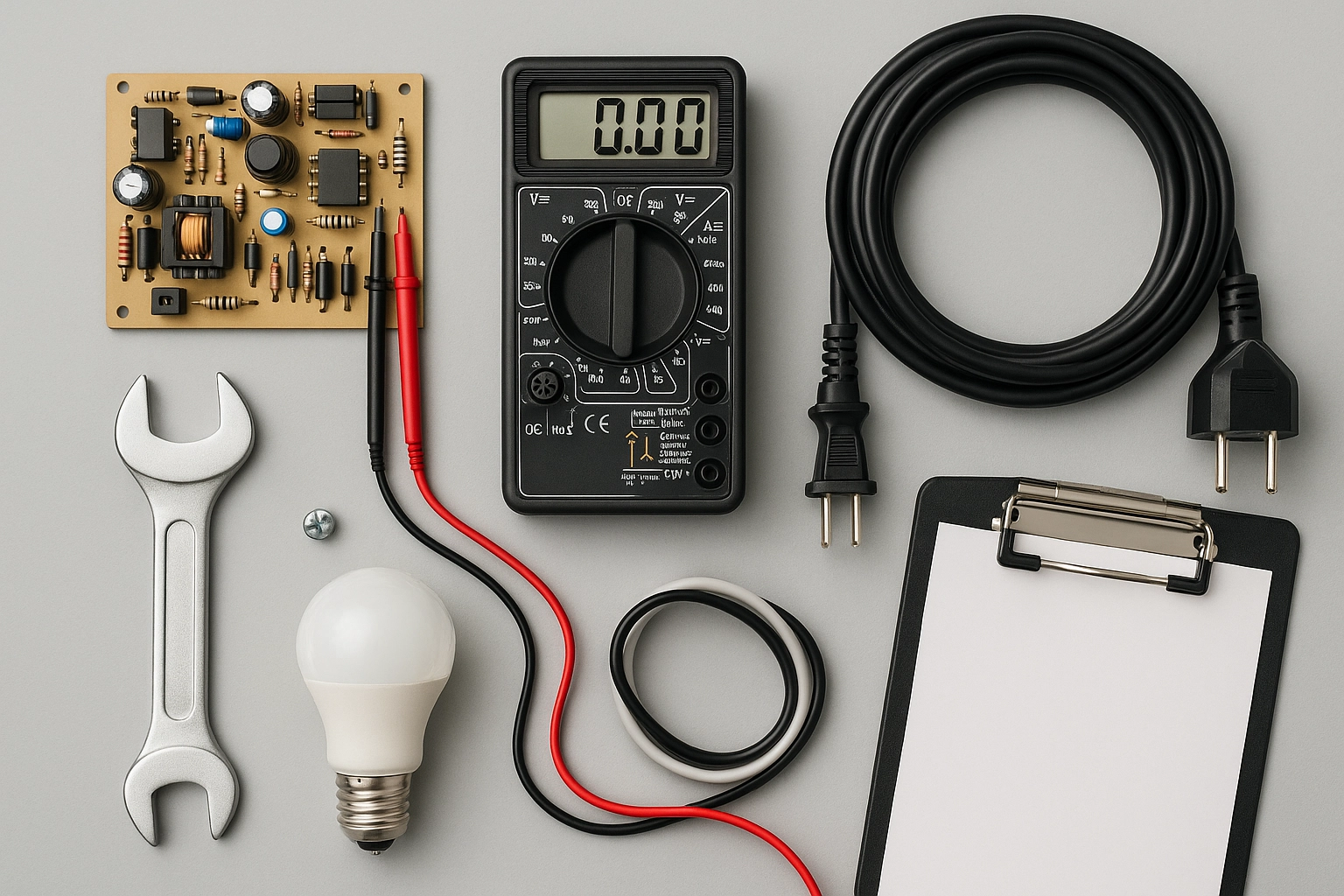Electrical and Electronic Systems Inspection
The inspection of electrical and electronic systems is a critical process in ensuring safety, compliance, and reliability across various sectors. Whether it's for consumer electronics, industrial machinery, or medical devices, the integrity of these systems directly impacts user safety and operational efficiency.
Electrical and Electronic Systems Inspection encompasses a wide range of processes designed to evaluate the performance, durability, and compliance of electrical components and assemblies. This includes testing for insulation resistance, dielectric strength, and voltage withstand capabilities. The inspection also covers functional checks such as circuit continuity, signal integrity, and electromagnetic compatibility (EMC).
The primary goal is to identify potential hazards or non-conformities that could lead to malfunctions, safety risks, or product recalls. By adhering to international standards like ISO 14969 for medical device manufacturing processes, we ensure a high level of quality and reliability in our inspections.
Our inspection services are tailored to meet the specific needs of different industries. For example, in automotive applications, we focus on testing high-voltage systems to ensure they meet stringent safety requirements set by organizations like SAE International. In consumer electronics, compliance with regulations such as CE marking is a key aspect of our service.
Our team of experts uses advanced testing equipment and software to perform comprehensive inspections. This includes multi-channel oscilloscopes for waveform analysis, impedance analyzers for impedance measurement, and specialized testers for specific applications like battery safety checks in portable devices.
Why It Matters
The importance of Electrical and Electronic Systems Inspection cannot be overstated. Non-conformities or failures in these systems can lead to severe consequences such as fires, malfunctions, or even fatalities. For instance, a defective component in an automotive braking system could result in vehicle accidents.
Compliance with relevant standards is essential not only for legal reasons but also for maintaining consumer trust and brand reputation. Non-compliant products may face market withdrawal or recalls, which can be costly and damaging to the company's image.
In addition, regular inspections play a crucial role in preventing potential hazards. By identifying issues early on, manufacturers can take corrective actions before they escalate into larger problems. This proactive approach not only enhances safety but also reduces maintenance costs and downtime.
The reliability of electrical and electronic systems is paramount in industries such as healthcare, aviation, and energy. In these sectors, even minor failures can have catastrophic effects. For example, a malfunction in an aircraft's avionics system could compromise flight safety, while a failure in a power plant's control system could disrupt electricity supply to millions.
By conducting thorough inspections, we help our clients stay ahead of regulatory changes and industry trends. This ensures that their products remain competitive and relevant in the marketplace.
Industry Applications
The inspection of electrical and electronic systems finds application across numerous industries. Here are some key sectors:
- Aerospace and Defense: Ensuring that avionics, communication systems, and power supplies meet stringent safety standards.
- Automotive: Testing high-voltage systems, battery packs, and other critical components to ensure compliance with SAE International standards.
- Medical Devices: Performing inspections for devices like pacemakers, insulin pumps, and imaging equipment to adhere to ISO 14969 guidelines.
- Consumer Electronics: Conducting EMC tests and safety checks on smartphones, laptops, and home appliances to meet CE marking requirements.
- Energy: Inspecting power generation and distribution systems for compliance with IEC standards.
- Railway and Transportation: Ensuring that signaling systems and train control equipment are reliable and safe.
- Consumer Goods: Testing electrical components in household appliances to ensure safety and durability.
In each of these industries, the inspection process is tailored to meet specific regulatory requirements and quality standards. Our expertise ensures that our clients can confidently meet these demands and stay ahead of the competition.
Use Cases and Application Examples
- Automotive Testing: Conducting high-voltage system checks on electric vehicles to ensure they comply with SAE International standards for safety.
- Medical Device Compliance: Performing inspections on pacemakers and insulin pumps to meet ISO 14969 requirements for medical device manufacturing processes.
- Consumer Electronics EMC Testing: Assisting manufacturers in achieving CE marking compliance by conducting electromagnetic compatibility tests on smartphones and laptops.
- Power Plant Inspection: Ensuring that power generation systems adhere to IEC standards for safety and efficiency.
- Aerospace System Checks: Evaluating avionics and communication systems for aerospace applications to meet stringent safety requirements set by SAE International.
- Railway Signaling Systems: Inspecting signaling equipment to ensure reliable operation in railway transportation systems.
- Consumer Goods Safety Checks: Testing electrical components in household appliances like refrigerators and washing machines for safety and durability.
- Industrial Machinery Compliance: Conducting inspections on industrial machinery to ensure compliance with relevant regulations and standards.
These use cases highlight the versatility of our inspection services across different industries. Our team is equipped to handle a wide range of applications, ensuring that each project receives the attention it deserves.





